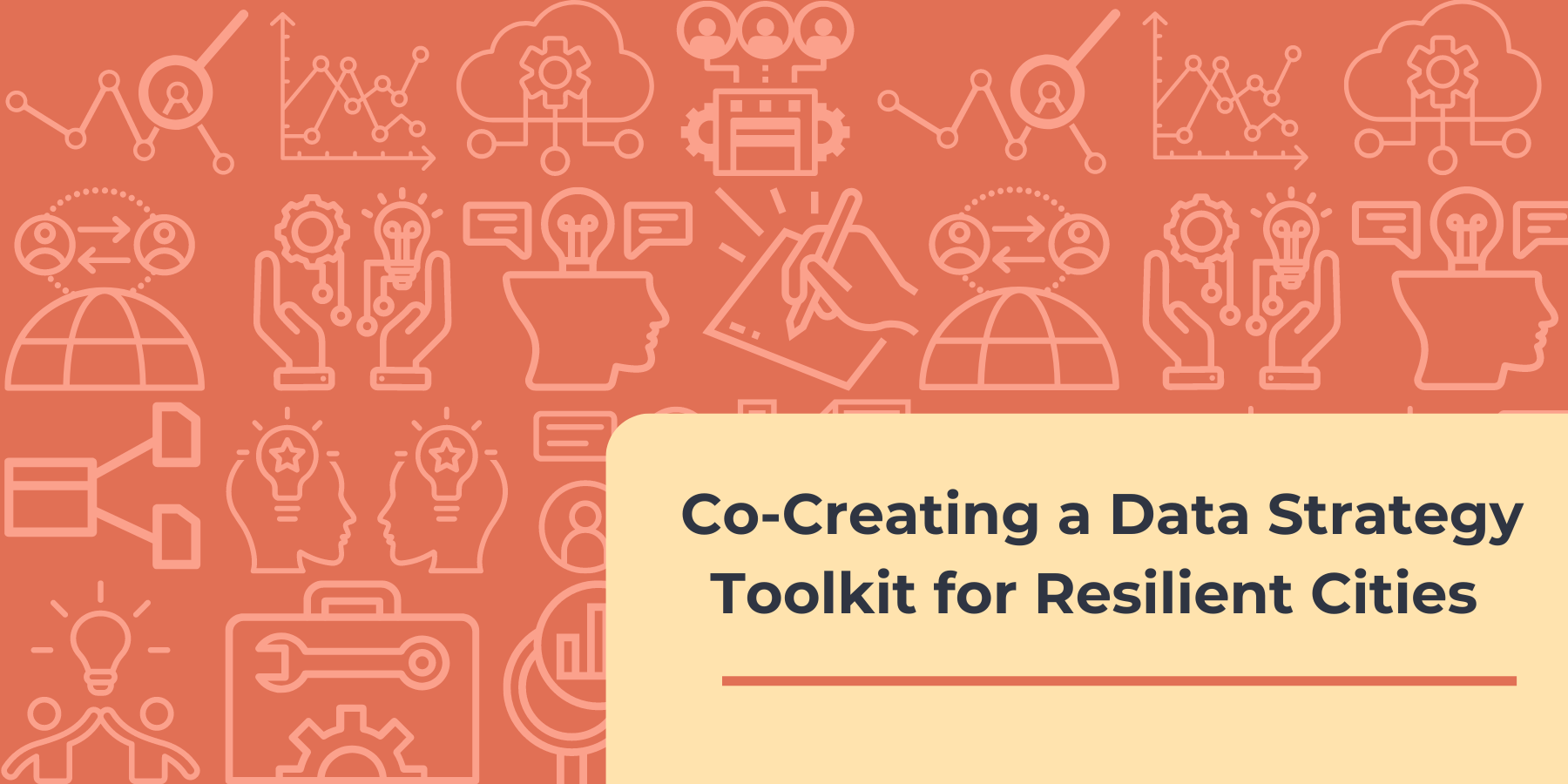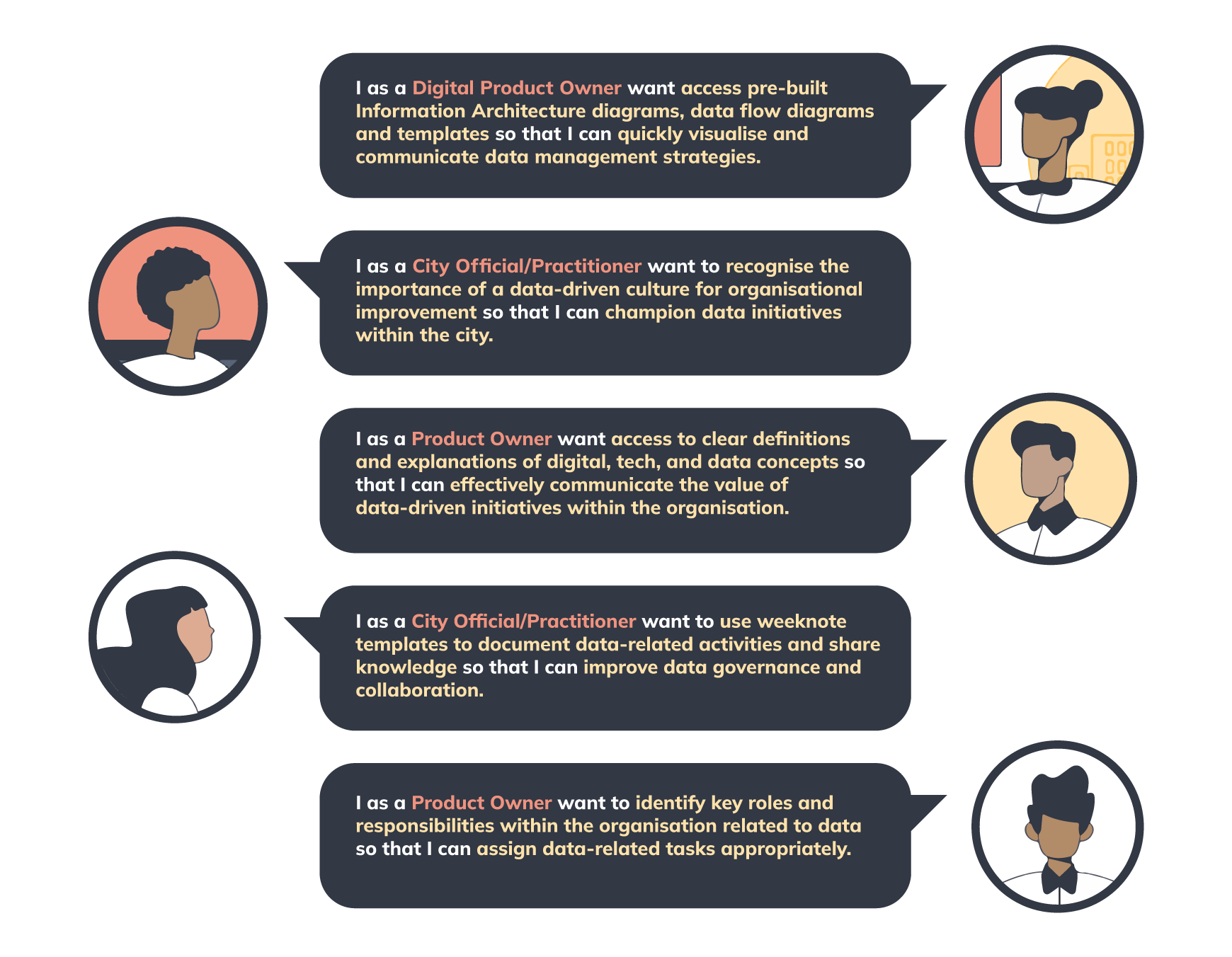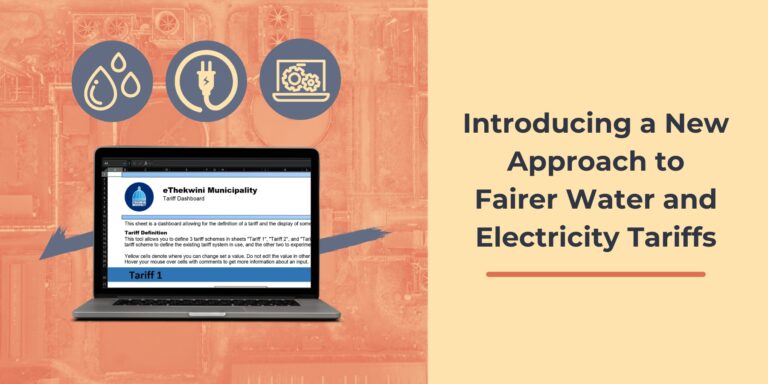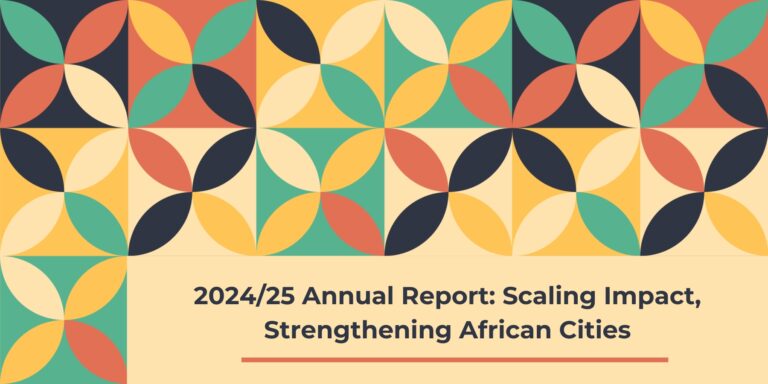
With this in mind, we’ve begun the exciting process of creating a data strategy toolkit as part of the UK Government’s Urban Resilience Programme in South Africa. The purpose of the data strategy toolkit is to empower city officials to use data for evidence-based decision-making. Why? To improve cities for the benefit of everyone.
A main aspect of the way we work at OCL is that we never want to create anything alone because we don’t have all the answers. Which is why we’re starting this conversation with you, the reader and the change-maker. Let’s dive into the What, Why, How and Who of data strategy toolkits to get the ball rolling (plus, don’t miss your chance to add to this topic by answering a few questions at the end).
What is a digital and data strategy toolkit?
At its core, the digital and data toolkit aims to be a practical guide designed to help cities create and implement an effective digital and data strategy. It will aim to outline the steps needed to achieve your ultimate goal—in this case, building a robust data strategy. The toolkit will aim to offer prompts and key questions that you can tailor to your specific situation, serving as a starting point for important conversations about how cities can best use data.
Now, what is a data strategy? A Data strategy outlines how cities can make better decisions that improve the lives of their residents by using data proactively to improve processes and overall decision-making. It helps establish the mechanisms for data flows and data utilisation between internal and external stakeholders in order to become an efficient and effective data ecosystem.
A data strategy seeks to understand the needs of all these stakeholders and empower data sharing and utilisation to become a data-driven city that can achieve its goals. In order to achieve this, city divisions need to be capable of producing data, as well as receiving and utilising data across internal and external boundaries.
We aim to develop a toolkit to guide users through the process of creating a data strategy, so that our users can:
- empower the residents of the City as the primary stakeholders of the City and to generally improve the lives of the residents.
- guide the city in the use of data to make rational decisions in planning, budgeting, forecasting and simulation;
- responsibly and appropriately leverage new technologies, such as artificial intelligence (AI) and the Internet of Things (IoT), in order to support the above-mentioned decisions; and
- aid the city in becoming better at monitoring and evaluation in order to realise an ever-improving ability to achieve its priorities and deliver quality services and development.
Our vision is that by following the steps outlined in the toolkit, city practitioners can develop a data strategy that is not only aligned with their specific needs but also adaptable to changing circumstances. The toolkit and the data strategy it helps create are intrinsically linked—one provides the roadmap, while the other is the destination. Together, we aim empower cities to leverage data to improve liveability and governance for all residents.
Why create a data strategy toolkit?
Our key mission at OCL is to build capacity within city institutions with the tools needed to address and solve their own problems by transferring value, so that we can exit as soon as possible. Because, ultimately, the products we help create should not revolve around us, they should revolve around the city and city residents. In other words, city institutions need to feel empowered to deliver services without depending on any external party for a prolonged period. When creating data strategies, our teams are aware that we can’t reach every city in the world because of obvious constraints. So, we’ve set out to understand how we can help these cities start their data journey without depending on external funding – hence the Data Strategy Toolkit.
Our aim in co-creating this toolkit is to ensure it is intentionally flexible, designed to evolve with the needs of each city. As we continue this work, we’re drawing from our extensive experience in South Africa and other African cities, while actively integrating insights from international best practices. We understand that cities are at different stages in their data and digital transformation journeys, so our toolkit is being crafted to meet cities exactly where they are, whether they’re just beginning or already well along the path. This collaborative approach ensures that the toolkit will be adaptable and relevant, no matter the starting point.
Who are the users of the data strategy toolkit?
To start the process of developing the data strategy toolkit, our team started by performing a brainstorming exercise internally. We unpacked two aspects: 1) who are the users of the toolkit, and 2) what are their top 10 needs. These 2 questions are major steering points for the process and critical to ensure we create a toolkit that achieves what it’s meant to.
Starting with the former question, we defined our long-term primary user to be a city practitioner who can use the toolkit to start developing a data strategy in their context. However, to realise this ultimate goal, we needed a short-term primary user who could help develop an alpha-version of the toolkit.
OCL’s practitioners or product managers who lead digital transformation and development of data strategies in cities were defined as the short-term primary users of the toolkit. In their context, we want to understand what version of the toolkit would help them start data strategy development in any city. One of the risks of creating a toolkit for our team is that there is a knowledge bias that is probable because we work in the city context. To mitigate this, we decided that we would test the toolkit with product managers at OCL who are not directly involved in the city data strategy development process currently.
What do the users need?
Now that we had a test user, we started writing user needs statements. The ultimate aim of this exercise was to define the top 10 needs and prioritise these for the toolkit. The exercise often starts with chaos (the generative and explorative phase of a process) as you are bound to get more needs than you bargained for; an outcome we thoroughly relish.

The below are all the needs we defined, written as:

.png)
Next Steps in our Co-Creation Journey
Now that we’ve identified the users and their top needs, we’re ready to embark on the next phase of co-creating the data strategy toolkit. With this foundational understanding, we can effectively tailor the toolkit to meet the practical requirements of city practitioners.
Using our agile development and user-oriented development process, we prioritised 4 actions as our next steps that can all occur concurrently (because life is too short for each step to be completed before moving to the next):
- Develop Test User Personas: Create detailed personas that represent our target audience, both short-term and long-term users.
- Create a User Journey Map: Outline the steps that a city practitioner or OCL product owner would follow to develop a data strategy, ensuring the toolkit supports them at each stage.
- Consolidate Test Artefacts: Gather and refine all the test artefacts we’ve developed through our work with cities. These artefacts include documents, plans, and tools that will help validate the toolkit’s effectiveness.
Garner Feedback from External Stakeholders: Start collecting feedback from external stakeholders to ensure the toolkit meets the broader needs of cities and their residents. This blog is just the beginning of that feedback process, and we’re eager to hear from you, our readers.
By taking these steps, we’re moving closer to delivering a toolkit that is both practical and adaptable, providing city practitioners with the tools they need to effectively harness data for urban resilience.
Join the Co-Creation Process
If you’re a city official or otherwise interested in making cities better, we’d love for you to engage in this co-creation process by filling in this form, containing the following questions:
- If you are a city official or practitioner, would you find a data strategy toolkit useful?
- What would your top 5 or top 10 needs be with a data strategy toolkit?
- What challenges have you faced when starting a digital transformation in your city/institute?
- Who are other potential users of this toolkit who should be engaged?
- Would you like to be part of the toolkit development process? e.g. through meeting engagements, reviewing drafts, etc.
- How would you like to be part of the toolkit development process? e.g. email updates, Weeknotes, blogs, etc.
Thanks to the support and funding from the UK Government, we’re able to turn this vision into reality. This toolkit is more than just a guide; it’s a living resource that supports cities at any stage of their digital transformation. By involving city practitioners and stakeholders, we ensure it is practical and adaptable.
We’re excited about this journey and invite you to be part of it. Your insights and feedback are vital as we refine the toolkit.
Share your thoughts on this article, get in touch, and let us know what you think about developing a data strategy toolkit for urban resilience! E-mail us at hello@opencitieslab.org.




